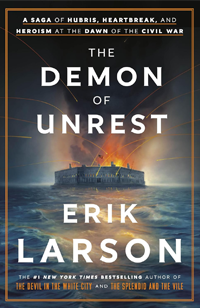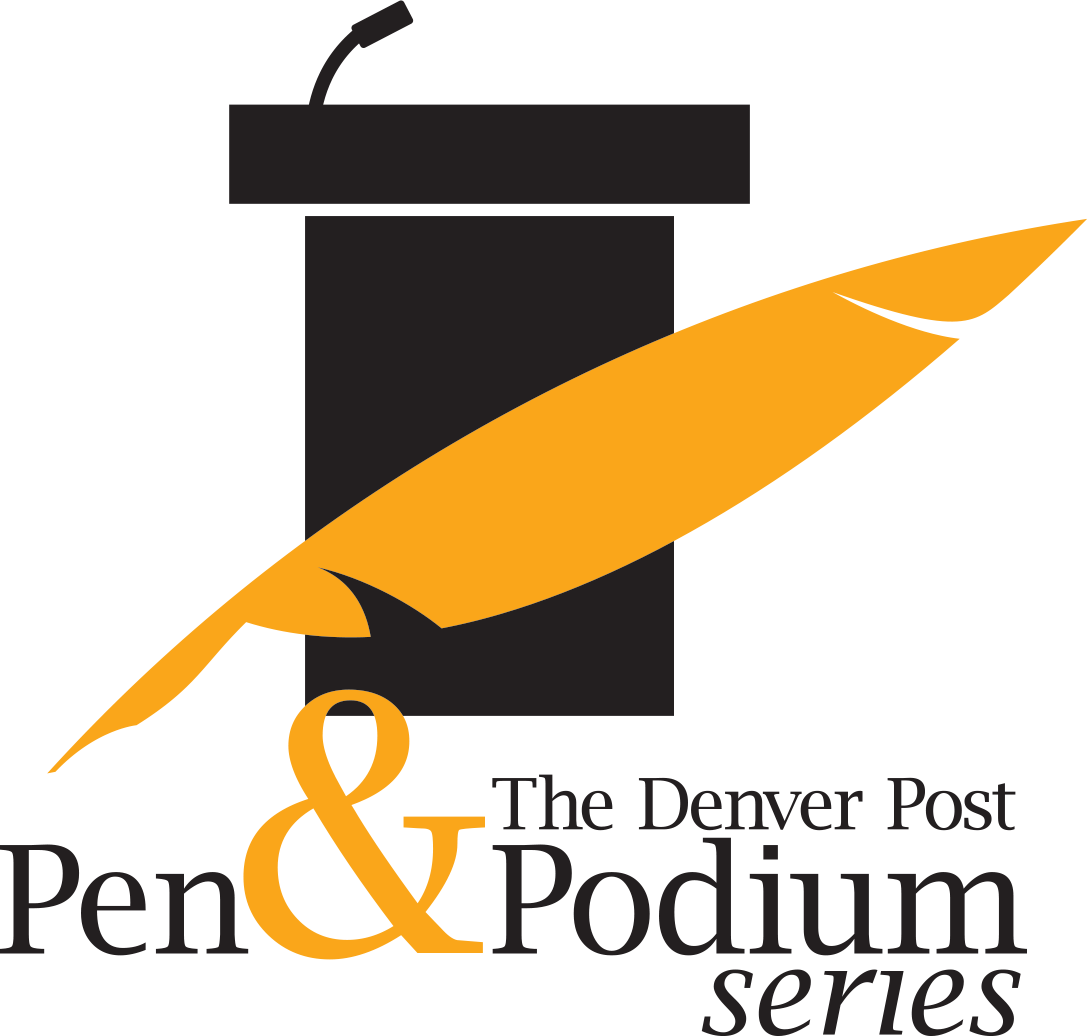
Book Club
Erik Larson
Monday, January 20, 2025
7 – 8:30 p.m.
Synopsis
#1 NEW YORK TIMES BESTSELLER • The author of The Splendid and The Vile brings to life the pivotal five months between the election of Abraham Lincoln and the start of the Civil War in this “riveting reexamination of a nation in tumult” (Los Angeles Times).
“A feast of historical insight and narrative verve . . . This is Erik Larson at his best, enlivening even a thrice-told tale into an irresistible thriller.”—The Wall Street Journal
On November 6, 1860, Abraham Lincoln became the fluky victor in a tight race for president. The country was bitterly at odds; Southern extremists were moving ever closer to destroying the Union, with one state after another seceding and Lincoln powerless to stop them. Slavery fueled the conflict, but somehow the passions of North and South came to focus on a lonely federal fortress in Charleston Harbor: Fort Sumter.
Master storyteller Erik Larson offers a gripping account of the chaotic months between Lincoln’s election and the Confederacy’s shelling of Sumter—a period marked by tragic errors and miscommunications, enflamed egos and craven ambitions, personal tragedies and betrayals. Lincoln himself wrote that the trials of these five months were “so great that, could I have anticipated them, I would not have believed it possible to survive them.”
At the heart of this suspense-filled narrative are Major Robert Anderson, Sumter’s commander and a former slave owner sympathetic to the South but loyal to the Union; Edmund Ruffin, a vain and bloodthirsty radical who stirs secessionist ardor at every opportunity; and Mary Boykin Chesnut, wife of a prominent planter, conflicted over both marriage and slavery and seeing parallels between them. In the middle of it all is the overwhelmed Lincoln, battling with his duplicitous secretary of state, William Seward, as he tries desperately to avert a war that he fears is inevitable—one that will eventually kill 750,000 Americans.
Drawing on diaries, secret communiques, slave ledgers, and plantation records, Larson gives us a political horror story that captures the forces that led America to the brink—a dark reminder that we often don’t see a cataclysm coming until it’s too late.
(From the publisher.)
Reading Group Discussion Questions
1. Have you read other books on the Civil War? Did Erik Larson’s book make you think differently about it? If so, how?
2. Why was Fort Sumter so crucial to all parties? What did it symbolize before and after South Carolina seceded from the Union?
3. Why does President Buchanan seem blindsided by secession? Why were both sides provoked by his final speech to Congress? How did it help pave the way for South Carolina and others to leave the Union?
4. How do the events of 1860–61 parallel the present day?
5. In the introduction, Larson notes, “At the heart of the story is a mystery that still confounds: How on earth did South Carolina, a primitive, scantily populated state in economic decline, become the fulcrum for America’s greatest tragedy?” Does the book solve that mystery? What answers did you see?
6. Talk about the city of Charleston. How had it changed over the nineteenth century? What was at stake for “the chivalry,” the state of South Carolina, and the Confederacy by 1860?
7. The title of the book comes from a letter written in 1860 by Dennis Hart Mahan, in reference to the long reign of the planter class: “But when commerce, manufacturers, the mechanic arts disturbed this condition of things, and amassed wealth that could pretend to more lavish luxury than planting, then came in, I fear, this demon of unrest which has been the utmost sole disturber of the land for years past.” What does “this demon of unrest” describe?
8. What light does the book shed on Abraham Lincoln? Does it reinforce or change your view of him?
9. Mary Chesnut’s diary gives a woman’s perspective on the unfolding events. What did you learn and find most interesting about her character?
10. Why were Southern planters affronted by the abolitionist reports of—and novels like Harriet Beecher Stowe’s Uncle Tom’s Cabin about—plantation life? Why were they convinced that, in slavery, they had created an ideal society?
11. Examples throughout the book suggest that Northerners, including the likes of Abraham Lincoln, did not understand Southern society. What did they fail to consider in the lead-up to the start of the Civil War?
12. “Cotton is king” was a widely repeated phrase at the time. Why was the South so certain that the North would back down from ending slavery? What made them think the world would follow suit?
13. Discuss Major Robert Anderson. How do his actions resonate with his soldiers, his superiors, and the rest of the country? What do you, as a reader, think of them?
14. While Lincoln tried to reassure Southerners that he wouldn’t change the current slave-labor system, Senator William Seward stated unequivocally that a slave system and a free-labor system could not co-exist: “It means that the United States must and will, sooner or later, become either entirely a slaveholding nation, or entirely a free-labor nation.” Why was this such a dangerous/brave/shocking thing to say? What does it reveal about the status quo of the day?
15. What was the public sentiment around Lincoln? What did his peers think about his political acumen? Why do you think Lincoln had his own doubts of his capacity to be president?
16. How much have the Democrat and Republican parties changed? What do the parties of 1860 look like when compared with those of today?
17. Discuss the concept of honor as it pertains to the players on each side. How does it inform their character? How does the South reconcile their concept of honor with the horrors of slavery?
18. To today’s reader, the Civil War seemed inevitable. Yet, at the time, people seemed to have little inkling of what was to come. Why did they think conflict would be brief, or unlikely to occur at all?
19. Talk about the campaign of disinformation that permeated 1860. What falsehoods endured? Is that similar to today? (Questions issued by publishers.)
(Questions issued by publishers.)
Additional Book Club Resources
Other Works by Erik Larson
• The Naked Consumer: How Our Private Lives Become Public Commodities (1992)
• Lethal Passage (1994)
• Isaac’s Storm: A Man, a Time, and the Deadliest Hurricane in History (1999)
• The Devil in the White City: Murder, Magic and Madness at the Fair That Changed America (2002)
• Thunderstruck (2006)
• In the Garden of Beasts: Love, Terror, and an American Family in Hitler’s Berlin (2011)
• Dead Wake: The Last Crossing of the Lusitania (2015)
• The Splendid and the Vile: A Saga of Churchill, Family, and Defiance During the Blitz (2020)
• No One Goes Alone (2021)
If You Liked The Demon of Unrest, may we recommend…
And There Was Light: Abraham Lincoln and the American Struggle, Jon Meacham
Team of Rivals: The Political Genius of Abraham Lincoln, Doris Kearns Goodwin
Our Ancient Faith: Lincoln, Democracy, and the American Experiment, Allen C. Guelzo
A Chain of Thunder, Jeff Shaara
Trouble The Water, Rebecca Dwight Bruff
Courting Mr. Lincoln, Louis Bayard
How the Word Is Passed, Clint Smith
A. Lincoln: A Biography, Ronald C. White Jr.
The Zealot and the Emancipator: John Brown, Abraham Lincoln, and the Struggle for American Freedom, H.W. Brands
The Fiery Trial: Abraham Lincoln and American Slavery, Eric Foner
Links of Interest for Your Book Club Discussion
Official Website
On Facebook
On Instagram
Creative Nonfiction, Encounter: Erik Larson
Literary Hub, “How a Non-Fiction Writer Finds His Next Subject”
NPR Fresh Air, “Erik Larson on the Dawn of the Civil War”
Podcast: Armchair Expert wih Dax Shepard: Erik Larson
The Spark, “Best-selling Author Erik Larson Discusses His New Book Chronicling the Start of the Civil War”
Steven Barclay Agency Speaker Page
New York Times Review, “Maybe Erik Larson Should Have Left the Civil War Alone”
VIDEO: Ken Burns and Erik Larson on America’s History from Crisis to Civil War
VIDEO: Free Library of Philadelphia In Conversation with Erik Larson

